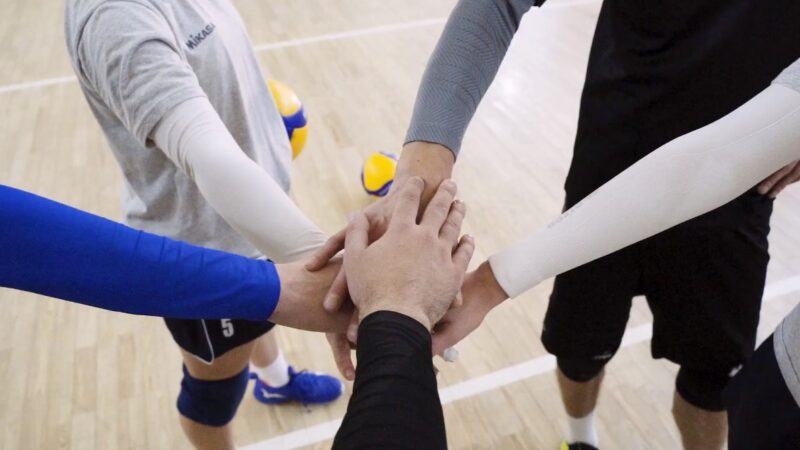Professional athletes are individuals who have honed their skills and abilities to compete at the highest level in their respective sports. They are admired for their physical prowess, strategic acumen, and unwavering dedication. However, beneath the surface of their impressive performances lies a less-discussed, yet equally important aspect of their lives: mental health.
In recent years, there has been a growing awareness of mental issues in sports. High-profile athletes have begun to speak openly about their struggles, bringing attention to a topic that has long been shrouded in silence. This increased visibility is a crucial step toward understanding and addressing the mental health challenges that many professional athletes face.
Discussing mental health is of utmost importance. The pressure to perform, coupled with the physical demands of their careers, can lead to significant challenges. By bringing these issues to light, we can work toward creating a sports culture that values and supports.
Prevalence of Mental Health Issues
Research indicates that mental health issues are prevalent among professionals. Studies have found that athletes are at risk for a range of problems, including anxiety, depression, and substance abuse. These findings underscore the need for increased attention and resources dedicated to athletes’ health.
Several factors contribute to challenges in professional athletes. Performance pressure is a significant factor, with them often facing intense scrutiny and high expectations. Physical injuries, too, can lead to issues, grappling with recovery and the potential impact on their careers. Additionally, transitions such as retirement can be stressful periods, leading to feelings of loss and identity crisis.
Understanding these factors is crucial in addressing sports. By recognizing the unique pressures and challenges that athletes face, we can better support them and promote their mental well-being.
Impact on Performance
Mental health and athletic performance are deeply interconnected. Issues can affect an athlete’s ability to perform, while the pressure to perform can exacerbate problems. This relationship underscores the need for a holistic approach to athlete health and performance.
There are numerous examples of athletes whose performance has declined due to struggles. These stories highlight the profound impact that can have on an athlete’s career. However, they also serve as a reminder that athletes, like all individuals, are more than their performance and deserve support and understanding in their journeys.
A holistic approach to performance recognizes the importance of mental health in addition to physical health. By prioritizing well-being, we can help them perform at their best while also supporting their overall health and happiness.
Stigma and Silence
Despite the prevalence of issues in sports, there is a pervasive culture of silence. Cultural and societal factors often discourage athletes from discussing their mental health struggles. This silence can perpetuate stigma and make it more difficult for athletes to seek help.
Fear of stigma is a significant barrier to seeking help. They may worry that admitting to struggles will be seen as a sign of weakness or will negatively impact their careers. This fear can prevent them from accessing the support and treatment they need.
Overcoming these barriers is a critical step in destigmatizing sports. By creating a culture that encourages open discussion and support, we can help athletes feel safe and supported in seeking help.
Support Systems and Resources
Sports organizations play a crucial role in promoting health. By providing resources and creating supportive environments, they can help them manage their well-beign and perform at their best.
Team-based support systems and peer support can be incredibly beneficial. Athletes often spend a significant amount of time with their teammates, who can provide understanding and support. Additionally, access to professionals and specialized services can ensure that receive the care they need.
However, there is still much work to be done. Many athletes lack access to resources, and sports organizations must continue to prioritize and invest in support.
Speaking Out
When athletes speak out about their struggles, they can have a profound impact. Their stories can help to break down stigma, encourage others to seek help and bring attention to the need for resources in sports.
Prominent ones across various sports have begun to advocate for mental health awareness. Their openness about their struggles has brought much-needed attention to sports and has helped to shift the conversation.
These athletes’ courage in sharing their stories is inspiring others to seek help and break the silence around mental health. Their advocacy is a powerful reminder of the importance of mental health and the need for support and understanding.
Strategies for Mental Health Promotion
Promoting mental health in sports requires a multifaceted approach. Education and training for athletes can help them understand and manage their well-beign. Preventative measures and stress management techniques can also be beneficial, helping to manage the pressures of their careers.
Encouraging a work-life balance and self-care practices is also crucial. Athletes, like all individuals, need time to rest and recharge. By promoting balance and self-care, we can help maintain their well-being while also performing at their best.
These strategies, while important, are just the beginning. Ongoing research and innovation are needed to continue improving mental support in sports.
Importance of Professional Support
Professional support is a critical component of mental care for athletes. Sports psychologists, in particular, can provide specialized support tailored to the unique challenges that athletes face.
Collaboration between medical professionals, coaches, and trainers can also be beneficial. By working together, they can provide comprehensive support that addresses both physical and other.
Individualized treatment plans and ongoing support are also crucial. It is not one-size-fits-all, and athletes deserve care that is tailored to their unique needs and experiences.
Incorporating Mental Health Screening
Routine mental health screenings can help to identify potential issues before they escalate. By incorporating these screenings into athletes’ regular health care, we can promote early intervention and timely treatment.
Identifying potential issues early can make a significant difference in an athlete’s journey. Early intervention can prevent issues from escalating and can help athletes get the support they need sooner.
Promoting early intervention and timely treatment is a crucial part of improving sports. By prioritizing screenings, we can help athletes maintain their well-being and perform at their best.
Promoting a Positive Team Culture
Positive team culture can have a significant impact on athletes’ mental health. By fostering open communication and support within teams, we can create environments where athletes feel safe and supported.
Emphasizing inclusivity, empathy, and psychological safety is also crucial. They should feel comfortable discussing their health and seeking support.
Team-driven initiatives for mental promotion can also be beneficial. By working together, teams can create supportive environments that prioritize mental health.
Role of Media and Public Perception
The media plays a significant role in shaping public perception of athletes’ mental health. Responsible media coverage can help to break down stigma and promote understanding.
However, the media can also perpetuate harmful stereotypes and contribute to the pressure that athletes face. The media must cover athletes’ mental responsibly and respectfully.
The media also has a role in promoting mental health dialogue. By covering these issues, they can help to bring attention to the importance of mental health in sports.
Implementing Policy Changes
Incorporating health policies in sports organizations is a crucial step toward supporting athletes. These policies can establish guidelines for mental support and resources, ensuring that they have access to the care they need.
Regular evaluation and adaptation of policies based on research are also important. As our understanding evolves, policies should be updated to reflect the latest research and best practices.
Implementing policy changes can have a significant impact on health. By prioritizing policy, sports organizations can create supportive environments that value and promote.
Collaborative Efforts
Addressing mental health in sports requires a collaborative effort. Partnerships between sports organizations, experts, and advocacy groups can help to share resources and best practices.
Sharing best practices and resources across sports disciplines can also be beneficial. By learning from each other, sports organizations can continue to improve their health support.
Collective efforts to prioritize athletes’ well-being can make a significant difference. By working together, we can create a sports culture that values and supports.
Conclusion
Addressing mental health in professional athletes is of utmost importance. The pressures and challenges of their careers can lead to significant mental health issues, and we must provide the support and resources they need.
Looking to the future, there is reason for optimism. As awareness of sports continues to grow, so too does the commitment to providing mental support. Athletes, sports organizations, and professionals are working together to create a sports culture that values and supports.



















